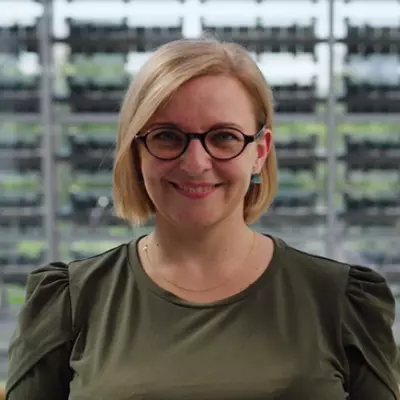Unrecognised heritage: Deaf film practices in (post)socialist Poland
September 10, 2024 | 2:00PM - 4:00PM
|
In-person
This event will be held in room 108N, 1 Devonshire Place, Toronto, ON, M5S 3K7
Since the beginning of film, deaf filmmakers have been documenting their communities’ activities, trying to shape the image of deafness and expressing their artistic visions. Due to the social, cultural, and political status of the deaf communities, deaf films have mostly been produced, distributed, and viewed in closed circuits of deaf networks. This was also the case in Polish deaf filmmaking, where the deaf film movement flourished from the late 1960s, similar to other Eastern European countries.
This talk focussed on two issues. First, the dynamics of the Polish deaf film movement since its beginning in the late 1960s, as it correlates with the political, social and cultural changes in Poland and in the Polish deaf community. In the socialist state, the fostering of a distinct deaf identity was not encouraged and social, political, and cultural activities were channeled by the state and its institutions. This influenced deaf filmmaking during the communism and after its fall. Another significant change was the adoption of the concept of Deaf culture, which has re-shaped Polish d/Deaf filmmaking in the 2010s. Secondly, the protection and preservation of the d/Deaf heritage. Currently, the scarcity of funds and resources puts deaf heritage, including films, in a precarious situation, resulting in a limited selection to be collected and preserved. Deaf heritage is rarely recognized as an element of national tradition and identity, so it rarely finds its way into institutional archives and collections. The presentation explored the crucial role of grassroots archival practices undertaken by d/Deaf citizen-archivists.
Magdalena Zdrodowska is Professor at the Institute of Audiovisual Arts, Jagiellonian University, Poland and chair of the international research platform Disability Studies in Eastern Europe - Reconfigurations, funded by the Jagiellonian University. She works at the intersection of disability studies, deaf studies, history of technology and film history. In 2021 she published in Polish the book "Telephone, Cinema and Cyborgs. Relationship between technology and deafness". She is currently the principal investigator of the research project Deaf History of Cinema. Technological and cultural relations of cinema and deafness, and is writing a book "Deaf Cinema". She has recently published: "Thrice Precious Tube!" Negotiating the Visibility and Efficiency of Early Hearing Aids ('Journal of Design History' 2023); I'm Angry! Disability protests in post-communist Poland ('Problems of Post-Communism' 2023); and History of Technology in Global Perspectives (co-authored, 'ICON: Journal of the International Committee for the History of Technology' 2024).
Sponsors: Centre for Global Disability Studies, and the Centre for European and Eurasian Studies
